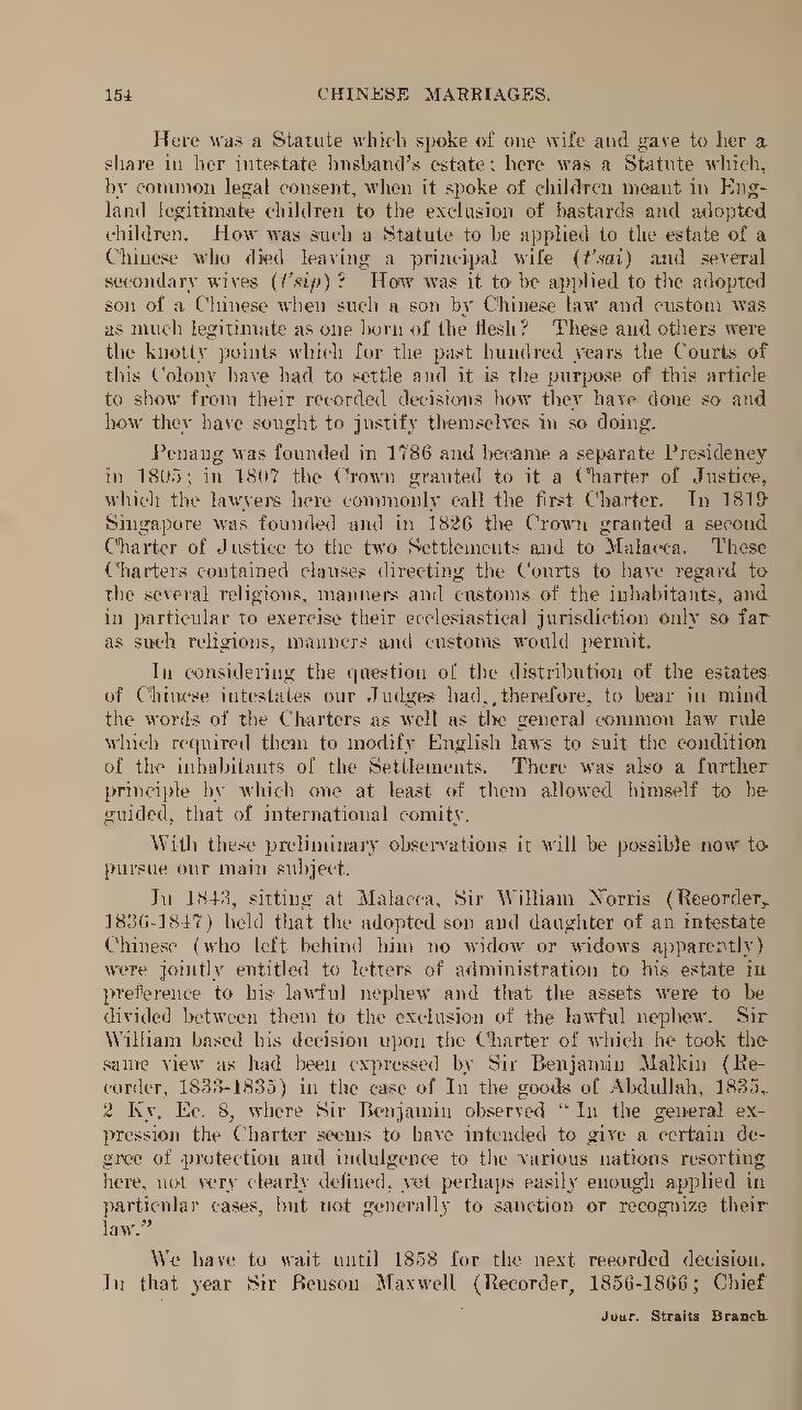Here was a Statute which spoke of one wife and gave to her a share in her intestate husband's estate: here was a Statute which, by common legal consent, when it spoke of children meant in England legitimate children to the exclusion of bastards and adopted children. How was such a Statute to be applied to the estate of a Chinese who died leaving a principal wife (t'sai) and several secondary wives (t'sip)? How was it to be applied to the adopted son of a Chinese when such a son by Chinese law and custom was as much legitimate as one born of the flesh? These and others were the knotty points which for the past hundred years the Courts of this Colony have had to settle and it is the purpose of this article to show from their recorded decisions how they have done so and how they have sought to justify themselves in so doing.
Penang was founded in 1786 and became a separate Presidency in 1805; in 1807 the Crown granted to it a Charter of Justice, which the lawyers here commonly call the first Charter. In 1819 Singapore was founded and in 1826 the Crown granted a second Charter of Justice to the two Settlements and to Malacca. These Charters contained clauses directing the Courts to have regard to the several religions, manners and customs of the inhabitants, and in particular to exercise their ecclesiastical jurisdiction only so far as such religions, manners and customs would permit.
In considering the question of the distribution of the estates of Chinese intestates our Judges had,, therefore, to bear in mind the words of the Charters as well as the general common law rule which required them to modify English laws to suit the condition of the inhabitants of the Settlements. There was also a further principle by which one at least of them allowed himself to he guided, that of international comity.
With these preliminary observations it will be possible now to pursue our main subject.
In 1843, sitting at Malacca, Sir William Norris (Recorder, 1836-1847) held that the adopted son and daughter of an intestate Chinese (who left behind him no widow or widows apparently) were jointly entitled to letters of administration to his estate in preference to his lawful nephew and that the assets were to be divided between them to the exclusion of the lawful nephew. Sir William based his decision upon the Charter of which he took the same view as had been expressed by Sir Benjamin Malkin (Recorder, 1838-1835) in the case of In the goods of Abdullah, 1835, 2 Ky. Ee. 8, where Sir Benjamin observed "In the general expression the Charter seems to have intended to give a certain de- gree of protection and indulgence to the various nations resorting here, not very clearly defined, yet perhaps easily enough applied in particular cases, but not generally to sanction or recognize their law."
We have to wait until 1858 for the next recorded decision. In that year Sir Benson Maxwell (Recorder, 1856-1866; Chief
